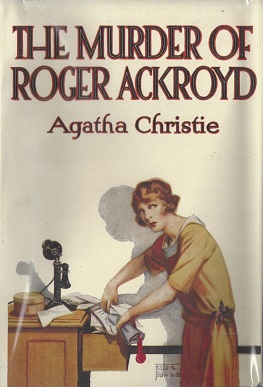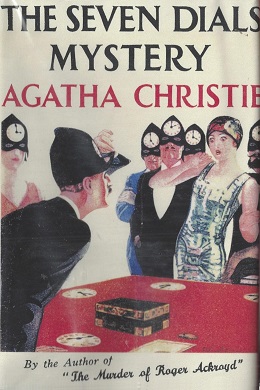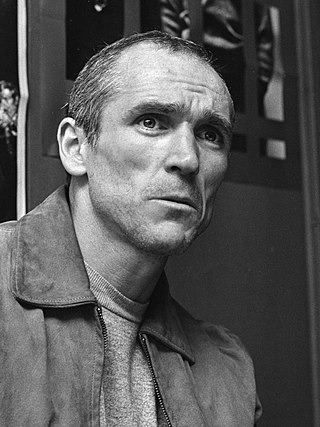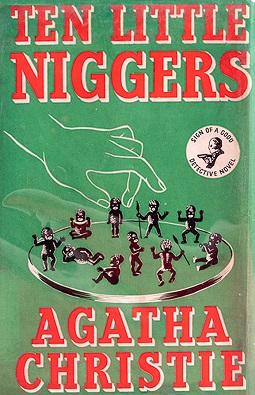Related Research Articles

Dame Agatha Mary Clarissa Christie, Lady Mallowan, was an English writer known for her 66 detective novels and 14 short story collections, particularly those revolving around fictional detectives Hercule Poirot and Miss Marple. She also wrote the world's longest-running play, the murder mystery The Mousetrap, which has been performed in the West End of London since 1952. A writer during the "Golden Age of Detective Fiction", Christie has been called the "Queen of Crime"—a moniker which is now trademarked by her estate—or the "Queen of Mystery". She also wrote six novels under the pseudonym Mary Westmacott. In 1971, she was made a Dame (DBE) by Queen Elizabeth II for her contributions to literature. Guinness World Records lists Christie as the best-selling fiction writer of all time, her novels having sold more than two billion copies.

Julie Frances Christie is a British actress. An icon of the Swinging Sixties, Christie is the recipient of numerous accolades including an Academy Award, a BAFTA Award, a Golden Globe, and a Screen Actors Guild Award. She has appeared in six films ranked in the British Film Institute's BFI Top 100 British films of the 20th century, and in 1997, she received the BAFTA Fellowship for lifetime achievement.

Valarie McDermid, is a Scottish crime writer, best known for a series of novels featuring clinical psychologist Dr. Tony Hill, in a grim sub-genre known as Tartan Noir.

The Murder of Roger Ackroyd is a detective novel by the British writer Agatha Christie, her third to feature Hercule Poirot as the lead detective. The novel was published in the UK in June 1926 by William Collins, Sons, having previously been serialised as Who Killed Ackroyd? between July and September 1925 in the London Evening News. An American edition by Dodd, Mead and Company followed in 1926.

The Seven Dials Mystery is a work of detective fiction by Agatha Christie, first published in the UK by William Collins & Sons on 24 January 1929 and in the US by Dodd, Mead and Company later in the same year.

Marcia Rachel Clark is an American prosecutor, author, television correspondent, and television producer. She is best known for having been the lead prosecutor in the O. J. Simpson murder case.
Stuart Christie was a Scottish anarchist writer and publisher. When aged 18, Christie was arrested while carrying explosives to assassinate the Spanish caudillo, General Francisco Franco. He was later alleged to be a member of the Angry Brigade, but was acquitted of related charges. He went on to found the Cienfuegos Press publishing house, as well as radical publications The Free-Winged Eagle and The Hastings Trawler, and in 2006 the online Anarchist Film Channel, which hosts films and documentaries with anarchist and libertarian socialist themes. His memoir Granny Made Me an Anarchist was published in 2004.

At Bertram's Hotel is a work of detective fiction by Agatha Christie and first published in the UK by the Collins Crime Club on 15 November 1965 and in the US by Dodd, Mead and Company the following year. The UK edition retailed at sixteen shillings (16/-) and the US edition at $4.50. It features the detective Miss Marple staying at an upmarket hotel which is at the centre of a mysterious disappearance.
William Charles "Billy" Hill was an English criminal, linked to smuggling, protection rackets and extreme violence. He was one of the foremost perpetrators of organised crime in London from the 1920s through to the 1960s. His gang managed cash robberies and, in a scam, defrauded London's high society of millions at the card tables of John Aspinall's Clermont Club.

John McVicar was a British journalist and convicted one-time armed robber who escaped from prison.
James Owen is a British historian and journalist.
Derek Creighton "Bertie" Smalls was considered by many as Britain's first supergrass. Although there have been informers throughout history – the Kray twins were partly convicted two years before Smalls on evidence given by Leslie Payne – the Smalls case was significant for three reasons: the first informer to give the police volume names of his associates and provide the evidence that would send dozens of them to prison to serve long sentences; the first criminal informer to strike a written deal with the Director of Public Prosecutions; the only criminal informer to serve no time for his crime in return for providing Queen's evidence.

Come, Tell Me How You Live is a short book of autobiography and travel literature by crime writer Agatha Christie. It is one of only two books she wrote and had published under both of her married names of "Christie" and "Mallowan" and was first published in the UK in November 1946 by William Collins and Sons and in the same year in the US by Dodd, Mead and Company. The UK edition retailed for ten shillings and sixpence (10/6) and the US edition at $3.00.
Roy Francis Adkins was an English gangster. He was a recognised London gangland figure during the 1970s and 80s.

And Then There Were None is a mystery novel by the English writer Agatha Christie, who described it as the most difficult of her books to write. It was first published in the United Kingdom by the Collins Crime Club on 6 November 1939, as Ten Little Niggers, after an 1869 minstrel song that serves as a major plot element. The US edition was released in January 1940 with the title And Then There Were None, taken from the last five words of the song. Successive American reprints and adaptations use that title, though American Pocket Books paperbacks used the title Ten Little Indians between 1964 and 1986. UK editions continued to use the original title until 1985.

Agatha Christie (1890–1976) was an English crime novelist, short-story writer and playwright. Her reputation rests on 66 detective novels and 15 short-story collections that have sold over two billion copies, an amount surpassed only by the Bible and the works of William Shakespeare. She is also the most translated individual author in the world with her books having been translated into more than 100 languages. Her works contain several regular characters with whom the public became familiar, including Hercule Poirot, Miss Marple, Tommy and Tuppence Beresford, Parker Pyne and Harley Quin. Christie wrote more Poirot stories than any of the others, even though she thought the character to be "rather insufferable". Following the publication of the 1975 novel Curtain, Poirot's obituary appeared on the front page of The New York Times.

Nicholas Davies is a British investigative journalist, writer, and documentary maker.
Freddie Foreman is an English publican, gangster, former associate of the Kray twins and convicted criminal.
Ronald Knight was an English convicted criminal and nightclub owner. He became well-known through his marriage to the actress Barbara Windsor.
References
- ↑ "Julie Christie Biography". TV Guide .
- 1 2 "View from elsewhere", The Guardian. Retrieved 20 May 2012.
- ↑ "Julie Christie Biography". TV Guide .
- ↑ "Julie Christie marries love of 28 years in secret Indian nuptials", Hello!, 30 January 2008.
- ↑ "Julie Christie gets married". The Guardian. London. 30 January 2008. Retrieved 7 May 2010.
- ↑ Gaidatzi, Dimi (11 February 2008). "Oscar Nominee Julie Christie: I've Been Married for Years". People.com.
- ↑ Campbell, Duncan (16 July 2008). "How I found myself in India". The Guardian.
- 1 2 "Duncan Campbell Profile". The Guardian. London. 1 October 2007. Retrieved 19 December 2010.
- ↑ Brook, Stephen (19 June 2009). "Duncan Campbell and David Hencke among those leaving Guardian". The Guardian. London. Retrieved 4 October 2010.
- ↑ Campbell, Duncan (5 September 2009). "The man in the mac: a life in crime reporting". The Guardian.
- ↑ "Duncan Campbell Biography", Andrew Lownie Literary Agency.
- ↑ "Guardian writers make it an awards hat-trick". Historical Papers Research Archive.
- ↑ "Cash writer scoops reporting prize". The Observer . 16 October 2005.
- ↑ Bence, Charlotte (October 2008). "The Paradise Trail". Socialist Review (329).
- ↑ Sethi, Anita (23 October 2011). "The Paradise Trail, By Duncan Campbell". The Independent.
- ↑ Wheeler, Sharon (September 2009). "Reviews: If It Bleeds". Reviewing the Evidence.
- ↑ United Agents, Duncan Campbell. Retrieved 20 May 2012.
- ↑ Mullin, Chris (23 May 2016). "We'll All Be Murdered in Our Beds: The Shocking History of Crime Reporting in Britain by Duncan Campbell – review". The Observer.
- ↑ Sanderson, Mark (21 April 2016). "We'll All Be Murdered in Our Beds! by Duncan Campbell - review: How hacks and cops have shown us the real underworld". Evening Standard .
- ↑ Campbell, Duncan (23 April 2016). "Doing time: confessions of a crime reporter". The Guardian.
- ↑ Sanderson, Mark (21 April 2016). "We'll All Be Murdered in Our Beds! by Duncan Campbell - review". Evening Standard.
- ↑ Mullin, Chris (23 May 2016). "We'll All Be Murdered in Our Beds: The Shocking History of Crime Reporting in Britain by Duncan Campbell – review". The Guardian.
- ↑ Campbell, Duncan (27 August 2019). Underworld: The inside story of Britain's professional and organised crime ***The Sunday Times Bestseller ***. National Geographic Books. ISBN 9781529103656 . Retrieved 19 November 2022– via book.google.com.